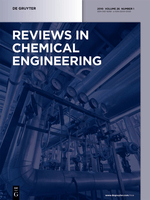
REVIEWS IN CHEMICAL ENGINEERING
Scope & Guideline
Transforming Ideas into Engineering Solutions.
Introduction
Aims and Scopes
- Sustainable Chemical Processes:
The journal emphasizes sustainable approaches in chemical engineering, exploring technologies that minimize environmental impact, such as wastewater treatment, biorefining, and the conversion of waste to valuable products. - Advanced Materials and Nanotechnology:
A core focus is on the development and application of advanced materials, including nanocomposites and nanostructures, for various uses such as catalysis, pollution remediation, and energy storage. - Process Engineering and Reactor Design:
Research on innovative reactor designs and processes, including modeling and optimization of chemical reactors, is a prominent theme, addressing efficiency and performance in chemical production. - Environmental Engineering:
The journal covers studies related to environmental impact, including pollutant degradation, waste treatment technologies, and methods for greenhouse gas reduction, highlighting the intersection of chemical engineering and environmental science. - Data-Driven Approaches and Machine Learning:
There is a growing interest in integrating data analytics and machine learning into chemical engineering, focusing on enhancing process optimization and predictive modeling. - Energy Conversion and Storage:
The journal explores advancements in energy technologies, particularly in the design and efficiency of electrochemical systems and batteries, reflecting the industry's shift towards greener energy solutions.
Trending and Emerging
- Membrane Technology:
Research on membrane technology is gaining traction, particularly in applications for gas separation, water treatment, and bioengineering, reflecting a growing interest in efficient and sustainable separation processes. - Biotechnology and Biochemical Engineering:
There is an increasing focus on biotechnological applications within chemical engineering, including enzyme catalysis, biorefining, and the use of biological materials for chemical production. - Circular Economy and Waste Valorization:
The theme of circular economy is emerging prominently, with studies on waste valorization and sustainable practices in chemical processes, aligning with global sustainability goals. - Machine Learning and AI in Chemical Engineering:
The integration of machine learning and artificial intelligence for optimizing chemical processes and predictive modeling is becoming a significant area of interest, indicating a trend towards data-driven methodologies. - Advanced Oxidation Processes (AOPs):
Research into advanced oxidation processes for wastewater treatment and pollutant degradation is trending, highlighting the need for effective environmental remediation technologies.
Declining or Waning
- Traditional Chemical Synthesis Methods:
Research related to conventional chemical synthesis methods appears to be waning, as the field increasingly prioritizes innovative and sustainable alternatives, such as enzymatic processes and green chemistry. - Basic Theoretical Studies:
There is a noticeable decrease in publications focused solely on fundamental theoretical studies in chemical engineering. Instead, the emphasis has shifted towards practical applications and interdisciplinary approaches. - Conventional Catalysis:
The exploration of traditional catalytic processes is less frequent, as the journal pivots towards more advanced and hybrid catalytic systems, such as photocatalysis and nanocatalysts. - Low-Impact Chemical Engineering:
The focus on low-impact, less innovative technologies is diminishing as the journal seeks to highlight cutting-edge advancements that align with sustainability and efficiency goals.
Similar Journals

Green Chemical Engineering
Pioneering research at the intersection of chemistry and ecology.Green Chemical Engineering, an esteemed journal published by KEAI PUBLISHING LTD, plays a pivotal role in advancing the field of sustainable chemical engineering. With an Open Access policy since 2020, this journal facilitates the free exchange of cutting-edge research and innovations that address critical environmental challenges. Based in China, it has rapidly gained recognition with impressive category quartiles, ranking Q1 in numerous relevant fields including Catalysis, Chemical Engineering (miscellaneous), Filtration and Separation, and Process Chemistry and Technology. Its presence in Scopus highlights its significance, with top rankings (e.g., Rank #4/19 in Filtration and Separation) placing it in the upper echelons of chemical engineering literature. Designed for researchers, professionals, and students alike, Green Chemical Engineering aims to foster a collaborative platform for the dissemination of pioneering work that contributes to a greener and more sustainable future.
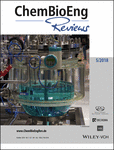
ChemBioEng Reviews
Advancing the Frontiers of Biochemical InnovationChemBioEng Reviews is a premier academic journal dedicated to advancing the fields of biochemistry, bioengineering, and chemical engineering. Published by WILEY-V C H VERLAG GMBH, this journal serves as an essential platform for researchers and professionals seeking to disseminate groundbreaking insights and innovations. With a remarkable impact factor and a solid reputation, it is ranked in the top quartile (Q1) across multiple disciplines, including Biochemistry, Bioengineering, and Industrial and Manufacturing Engineering. The journal's comprehensive scope covers the synthesis, analysis, and application of bioengineered solutions, making it a vital resource for anyone involved in process chemistry and technology. With an unwavering commitment to high-quality scientific discourse from 2014 to 2024, ChemBioEng Reviews is not only pivotal for the academic community but also contributes to industry advancements in filtration, separation processes, and the intersection of chemical and biological engineering.
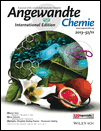
ANGEWANDTE CHEMIE-INTERNATIONAL EDITION
Elevating Global Chemistry Standards Since 1962ANGEWANDTE CHEMIE-INTERNATIONAL EDITION, published by WILEY-V C H VERLAG GMBH, stands as a leading journal in the fields of Chemistry and Catalysis, holding a prestigious position with a Q1 ranking in both categories as of 2023. With an ISSN of 1433-7851 and an E-ISSN of 1521-3773, this esteemed publication has been an invaluable resource for the global scientific community since its inception in 1962. The journal's impact is further underscored by its remarkable Scopus rankings, where it occupies the 13th place among 408 journals in General Chemistry and the 4th place among 68 in Chemical Engineering - Catalysis, marking it in the 96th and 94th percentiles, respectively. Although it does not offer Open Access, ANEWANDTE CHEMIE-INTERNATIONAL EDITION remains essential for researchers, professionals, and students seeking to stay abreast of cutting-edge developments and innovations in chemical sciences. Its comprehensive scope and rigorous peer-review process ensure that only the highest quality research finds its way to publication, contributing significantly to the advancement of chemistry worldwide.
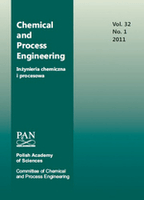
Chemical and Process Engineering-New Frontiers
Bridging Theory and Practice in Chemical EngineeringChemical and Process Engineering-New Frontiers, published by POLSKA AKAD NAUK and the POLISH ACAD SCIENCES, is a premier academic journal dedicated to advancing the frontiers of chemical engineering and chemistry. With an ISSN of 0208-6425 and an E-ISSN of 2300-1925, this journal serves as a crucial platform for disseminating cutting-edge research and innovative practices in the field. Despite its Q4 ranking in both Chemical Engineering and Chemistry categories and a low percentile ranking in Scopus, the journal aspires to enhance visibility and impact in the scientific community through its focus on novel methodologies and groundbreaking studies. Operating as a traditional journal without open access, it aims to connect researchers, professionals, and students, fostering collaboration and knowledge exchange. With a commitment to publishing impactful research, Chemical and Process Engineering-New Frontiers plays an important role in shaping the future of chemical processes and engineering advancements.

Frontiers of Chemical Science and Engineering
Unleashing Potential Through Interdisciplinary CollaborationFrontiers of Chemical Science and Engineering is an esteemed journal published by SPRINGER, dedicated to advancing the rapidly evolving domain of chemical engineering. Located in New York, USA, this journal provides a vibrant platform for disseminating groundbreaking research and innovative methodologies in the field. With an impressive Q1 ranking in Chemical Engineering and a Scopus ranking of 54 out of 273, it occupies a prominent position, reflecting its high impact and relevance among academic circles. Since its inception in 2011, it has fostered interdisciplinary collaboration, encompassing diverse topics such as process engineering, environmental sustainability, and nanotechnology, making it a vital resource for researchers, professionals, and students alike. The journal's open access policy further enhances accessibility, ensuring that cutting-edge research is readily available to a global audience. As the field continues to evolve, contributions to Frontiers of Chemical Science and Engineering play an essential role in shaping future advancements and empowering the next generation of engineers.

CHEMIE INGENIEUR TECHNIK
Advancing the Frontiers of Chemical Engineering and Technology.CHEMIE INGENIEUR TECHNIK, published by WILEY-V C H VERLAG GMBH, stands as a significant academic journal in the fields of Chemical Engineering, Chemistry, and Industrial and Manufacturing Engineering. With an ISSN of 0009-286X and an E-ISSN of 1522-2640, this esteemed journal has been contributing to the body of knowledge since 1949 and plans to continue its legacy until 2024. Notably, the journal holds a Q2 quartile ranking in 2023 across various categories, illustrating its recognized impact and relevance within the scientific community, with Scopus ranks indicating it falls within the top 60th to 51st percentiles of its respective fields. Although currently not open access, CHEMIE INGENIEUR TECHNIK provides readers with comprehensive insights into contemporary research, technological advancements, and practical applications, making it an essential resource for researchers, professionals, and students who are keen to stay abreast of developments in chemical processes and engineering advancements.
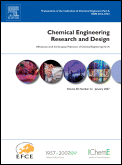
CHEMICAL ENGINEERING RESEARCH & DESIGN
Catalyzing Progress in Chemical Research and Application.CHEMICAL ENGINEERING RESEARCH & DESIGN is a prestigious journal that has been at the forefront of dissemination in the fields of chemical engineering and general chemistry since its inception in 1983. Published by Elsevier, the journal features a rich array of research articles that contribute to both theoretical and practical advancements in the discipline. With an impact factor that positions it strongly within the Q2 quartile for both Chemical Engineering and Chemistry categories, it occupies an esteemed place in the academic community, being ranked #77 out of 273 in Chemical Engineering and #111 out of 408 in General Chemistry on Scopus. Researchers and professionals will find it an invaluable resource for cutting-edge research and innovative methodologies that shape the future of chemical engineering applications. While the journal does not currently offer open access, it remains accessible through institutional subscriptions, ensuring that important findings continue to reach a broad audience. With a scope that is poised to expand through 2024, the journal aims to foster collaboration and knowledge sharing, supporting the continuous evolution of the field.

Applied Chemistry for Engineering
Exploring the Intersection of Chemistry and EngineeringApplied Chemistry for Engineering, published by the Korean Society of Industrial and Engineering Chemistry, is a vital resource for researchers and professionals engaged in the realms of chemical engineering and applied chemistry. With an ISSN of 1225-0112 and an E-ISSN of 1228-4505, this journal serves as a platform for innovative research that spans diverse applications within these fields. Although currently not classified under open access, it provides critical insights and advancements to its audience, contributing to the ongoing discourse in the industry. The journal's significance is underscored by its rankings in Scopus, where it resides in the Q4 category for both Chemical Engineering and Chemistry, evidencing its commitment to publishing relevant studies despite its emerging status. As it continues to grow through the converged years from 2007 to 2024, Applied Chemistry for Engineering aims to bridge the gap between theoretical research and practical engineering solutions, making it an essential tool for students, researchers, and professionals alike.
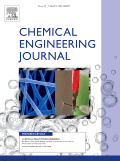
Chemical Engineering Journal
Innovating solutions for a sustainable future.The Chemical Engineering Journal, published by Elsevier Science SA, stands as a premier platform for groundbreaking research in the multidisciplinary fields of chemical engineering, chemistry, and environmental science. With an impressive impact factor and ranking in the Q1 category across multiple categories such as Chemical Engineering, Chemistry, and Environmental Chemistry for 2023, this journal not only leads in publishing high-quality research but also emphasizes the latest advancements and innovative solutions in these critical areas. Researchers and professionals benefit from the rigorous peer-review process and can access a wealth of knowledge through the journal’s extensive archive, which has been a staple in academia since 1975. The Chemical Engineering Journal is vital for anyone aiming to advance their understanding of complex chemical processes, engineering applications, and environmental impacts, making it an essential resource for students, academics, and industry experts alike.

Journal of the Pakistan Institute of Chemical Engineers
Exploring New Frontiers in Chemical Engineering Practice.The Journal of the Pakistan Institute of Chemical Engineers serves as a pivotal platform for advancing the field of chemical engineering within Pakistan and beyond. Published by the Pakistan Institute of Chemical Engineers, this journal aims to disseminate high-quality research, reviews, and case studies that cover a wide scope of topics relevant to chemical engineering, including process design, environmental technology, and materials science. Although it operates under a non-open access model, the journal is committed to maintaining rigorous peer-review standards to ensure the publication of impactful articles that contribute to the advancement of knowledge and best practices in the discipline. As a hub for researchers, professionals, and students alike, this journal not only fosters academic collaboration but also plays an integral role in shaping the future of chemical engineering in the region. With an ISSN of 1813-4092, it is dedicated to enhancing the visibility and accessibility of chemical engineering research, promoting innovation and education within the field.